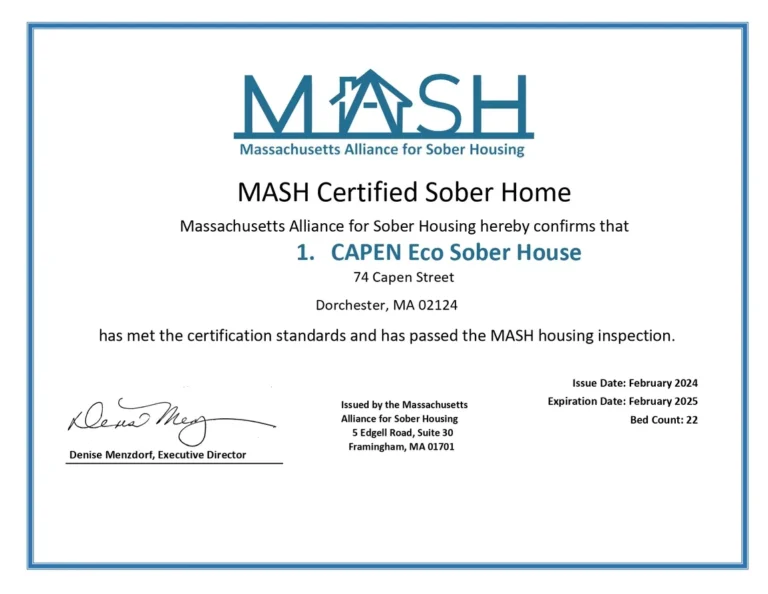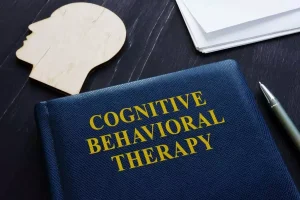
Drugs that antagonize these receptors, including the licensed drug naltrexone have been found to attenuate alcohol seeking in rats and have been shown to clinically reduce alcohol consumption [144]. In summary, MRI studies have offered invaluable insight into the effects of alcohol and have typically found a loss of volume and reduced myelination throughout the brain. The findings described here fit the notion that alcohol affects healthy brain aging and this effect becomes more pronounced with higher levels of consumption.
What do healthcare professionals who work with adolescents need to know about alcohol?

However, try not to have too many firm expectations, as symptoms can continue for multiple weeks in some people. During the 12- to 24-hour time frame after the last drink, most people will begin to have noticeable symptoms. These may still be mild, or the existing symptoms might increase in severity. Data https://ecosoberhouse.com/ from the 2021 National Survey on Drug Use and Health (NSDUH) shows that approximately 29.5 million Americans aged 12 and above experienced alcohol use disorder (AUD) in the previous year. Alcohol wipes out the deep sleep we need to feel refreshed, which can leave you feeling tired during the day.
- However, it doesn’t address the patterns and behaviors that prompt alcohol dependency.
- Anyone can develop long COVID, though risk generally increases with COVID-19 symptoms severity.
Got Brain Fog? Here’s How Alcohol Affects Your Dopamine and Reward System.
- Moreover, brain fog brought on by alcohol can interfere with relationships, job performance, and day-to-day living.
- Alcohol-related brain fog can generally last several days to weeks after quitting drinking.
- You might have heard people comparing your brain to a computer, but the truth is a lot more complicated than that.
Following a bout of heavy drinking, a person may experience symptoms including decreased attention and concentration.3 This can impair a person’s ability to perform certain tasks. As a result, they may perform poorly at school or work and be at an increased risk of injury. If you want to cut back on your alcohol consumption and boost your brain health, consider trying Reframe. We’re a neuroscience-backed app that has helped millions of people reduce their alcohol consumption and improve their cognitive functioning.

Spend time in nature
Most people who have dealt with alcohol addiction have some idea of what brain fog feels like because it is very similar to how you might feel after a round of heavy drinking. During brain fog, you may experience any or all of the following symptoms. The symptoms of ARBD vary, but include problems with cognitive functioning (thinking and understanding) and memory, alongside physical symptoms. Many of these symptoms can improve or even disappear over time with proper care and treatment. Multiple episodes of heavy drinking can have long-term consequences for memory.
The Journey to Recovery: Life After Detox
Cancer, or abnormal and uncontrolled cell growth, can affect nearly every tissue, such as breast, bone, and skin. Treating cancer depends on the type and its stage but typically includes chemotherapy, radiation, and surgery, among other treatments. Chemotherapy typically causes chemo brain, though other treatments may also cause brain fog. The nerve cells in different regions of your brain send signals to each other to communicate and help you focus, perform tasks, and think clearly. Inflammation in your brain damages those nerve cells, making it hard for them to transmit signals. Some may tell you to sweat it out, but we don’t advise hitting the gym.
- As safe alcohol consumption varies from person to person, and different sources recommend various intakes, it is important to take an individualized approach.
- When alcohol isn’t metabolized properly, less glucose is available to fuel neurotransmitters like glutamate and GABA.
- Consistent drinking can alter the chemistry of your brain, and for some people this could mean brain fog.
- It’s an unfortunate reality of aging — those occasional periods of forgetfulness or “brain fog” where you can’t think clearly or have trouble multitasking and comprehending information.
Legacy Healing Center are available 24/7 to discuss your treatment options. Their representatives will discuss whether their facility may be an option for you. These symptoms are easily identified and cause a lot of struggle in relationships. Mood swings can occur, compromising your emotional stability and well-being and increasing the risk of violent outbursts.
What does brain fog feel like?
In fact, research has shown that walking can help improve brain function and reduce the risk of developing Alzheimer’s disease. Brain exercises can help get rid of brain fog symptoms and enhance your cerebral function in the long run. The best way to combat this issue is to reduce or eliminate alcohol consumption.
Our treatment programs provide comprehensive care starting with medical detox through treatment, with qualified staff available to assist you. AAC is so confident in their ability to help people stay sober alcohol brain fog that they offer a 90-day promise. If you relapse after having completed 90 days of consecutive treatment at an AAC facility, you can return for another 30 days of treatment at no additional cost.
You might be experiencing brain fog, a term used to describe a set of symptoms that impact your ability to think. It can help to eat healthfully, get creative, and take regular screen breaks. See a doctor if your brain fog persists with other cognitive symptoms. A 2018 study that followed 9,087 participants for 23 years found that people who did not drink alcohol in midlife were more likely to develop dementia.

No Deposit Sites » Sober living »
